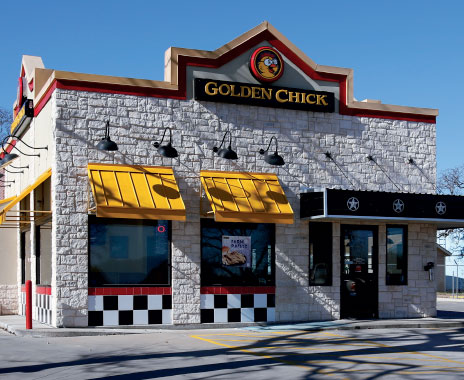When it comes to navigating crises, James Lukaszewski says there’s a simple yet effective catchphrase that should serve as a guidepost: Speed beats smart every time. That’s because every silent second that passes during a public relations disaster only makes things worse.
“If you search for perfection in your response, your reputation will be gone before you find it,” says Lukaszewski, president of the crisis management division at the Risdall Marketing Group.
Crisis management may be growing more complex with the popularity of social media. Chipotle’s E. coli outbreak in the Pacific Northwest, followed by a norovirus crisis in Boston, made an immediate impact. Public perception–tracking firm YouGov BrandIndex found that around Halloween, 24 percent of adults would consider Chipotle for their next fast-casual purchase. Right after the first outbreak, that figure dropped to 19 percent.
While social media can quickly spread news of a crisis, such platforms also provide brands a means to act fast.
“That, to me, is the biggest selling point for social media,” Lukaszewski says. “We now can respond almost instantly with 140 characters and be at least in the game at the start.”
Crisis management has long been a staple of management training, and in recent months, negative headlines for big brands have put the issue at the forefront. In addition to Chipotle’s E. coli episode, Subway took a blow when longtime spokesman Jared Fogle was convicted after a child pornography investigation.
Most crises in the restaurant industry can be avoided with basic operational oversight, like proper food-safety measures and a focus on quality control. “Most of the problems in the food industry are food problems,” Lukaszewski says.
Whether a restaurant’s crisis stems from the food itself or from other outside influences, he says, brands should make an effort at a sincere apology—even in some cases when the company does not feel that it is at fault. Oftentimes, management is dissuaded from apologizing for fear of opening the company up to litigation.
“Apologies are so powerful that they stop bad things from happening,” Lukaszewski says.
Public crises serve as opportunities for other companies to learn from a brand’s successes and failures. Restaurant consultant Aaron Allen says Fogle’s downfall reminded companies everywhere of the risks of relying on celebrities in marketing.
Allen adds that Subway could have done more than distance itself from its former spokesman; the company could have donated to groups that advocate for abuse victims or at least highlighted the issue.
“A crisis is an opportunity for brands to raise awareness of an issue and to come out of the other side stronger,” Allen says. “And in many cases, they’re so concerned with minimizing their weaknesses and risks that they tend to do the bare minimum and hope it goes away quickly.”
Subway swiftly denounced Fogle, but it will likely be feeling the effects of that crisis for quite some time, says Pete Wiltjer, principal of Pete Wiltjer Marketing Group.
“In Subway’s case, they still are probably dealing with some fallout from this issue with Jared,” he says. “And that takes a little bit of time because you have to come up with a meaningful solution, not just a Band-Aid.”
Wiltjer says restaurants have to be fast, vocal, and sincere in crisis situations. Whether or not consumers choose to believe the apology, they still want accountability.
Many leadership teams work to prepare ahead of crises, but Eric Dezenhall, cofounder of crisis management firm Dezenhall Resources, says the underlying quality of management is just as important.
“You kind of sound like a Neanderthal suggesting you’re not supposed to prepare, but the reality is that the leadership of an organization is far more relevant to how you respond to one of these crises than how good your plan is,” he says.
Dezenhall separates corporate crises into two main categories: “behavior” crises, in which a company’s internal ethics are challenged, and “sniper” crises, in which an outside force causes problems. He says both Subway and Chipotle’s recent cases were examples of sniper crises.
Unlike Lukaszewski, Dezenhall views social media as a “massive negative” when it comes to crisis management because nearly any user can elevate even minor issues.
“So many of my days are spent with some conglomerate being held hostage by a couple moms on Facebook,” he says.
Dezenhall says the biggest brands face the most scrutiny from consumers—which is good news for smaller brands and restaurants. While smaller concepts may not have the resources to hire in a big-gun crisis manager, they’re more likely to receive latitude from consumers.
Dezenhall also warns of being too reactive, especially on social media. Such an approach puts brands at risk of causing further damage, particularly when customers become confrontational. Dezenhall says he thinks people who have become self-styled activists want to be seen as victims of corporate malfeasance. In these cases, it’s all but impossible for a brand to come out on top.
Companies also face new challenges in a nonstop news cycle.
“Now what happens when there is a corporate crisis is the pundits run on TV and dive in front of cameras to declare the crisis to have been mismanaged,” he says. “You have the dual problem of the crisis itself and the greenhouse effect.”













